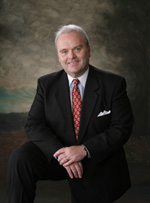Eric Ewanco tells me he got a message from the Family Research Council, and it’s leaving me a bit unsatisfied as it does him. The message discusses the Federal gummint’s “economic stimulus” bill just enacted in DC, and goes on to opine that it won’t help the economy as much as a permanent tax decrease.
While the rebates may provide some instant reprieve, they will do little to bring about the long-term resilience that permanent tax relief policy would.
It’s an interesting point, and I think it’s probably correct.
But how does some issue of technical economic policy become an issue occupying the time of this respected pro-life, pro-family, pro-morality organization?
Deacon Keith Fournier looks at the movement that carried the standard of faithful, orthodox Christians’ political activism: 
The “religious right” movement ended up becoming a politically conservative, Republican and mostly evangelical Protestant movement. Though it claimed to include both Catholic Christians and evangelical Protestant Christians, most Catholic Christians never joined; and even those who worked with the movement on pro-life and pro-family issues did not fit in within the culture or model of the religious right movement.
Though faithful Catholics and Protestants certainly shared what has been called the “socially conservative” agenda, the “religious right” movement was built upon –and thrived within –a “persecuted minority” model of activism.
Some of the movements’ efforts were premised upon an “anti-” approach to effecting social, political and judicial change. The emphasis was placed on opposing the current problems and less on proposing alternatives and solutions.
The movement spoke almost exclusively of what was wrong with the culture and failed to articulate a better way forward. It focused on criticizing what was unjust and wrong and little on offering a compelling vision for a truly just social order.
It developed what could be called a hope deficit, failing to give a compelling vision for a better, more caring Nation. It did not often premise its positions within a framework of an integrated vision of the human person, the family, the social order and principles of authentic social justice.
It became co-opted by — even submerged into — the existing conservative political movement, a secular movement, and obscured by peripheral causes whose connection to Christian faith and doctrine is not obvious.
It may have been due to a lack of a cohesive social teaching in the particular Christian tradition and formation of the leaders involved in the movement. However, the sad effect was that much of the rhetoric which emerged made it sound as though all politically “conservative” ideas were somehow “Christian”.
Thus the movement lost its “religion” and became just another extension of the conservative movement. […]
For example, I will never forget the day when I took exception to a conservative icon’s claim that the Second Amendment (protecting the right to bear arms) secured what he called the “first freedom”. I insisted that the first freedom was not owning a gun but rather religious freedom and that the first right was the right to life.
Based upon the reaction of that one early leader of the religious right, you might have thought I had blasphemed [….]
In this election season, Christian social conservatives in the Republican party have been chafing at their status as a mere faction, often an ineffectual one, in the GOP, so Dcn. Fournier’s arguments are timely.
(A hat-tip to The Catholic Knight who spotted the article.)

